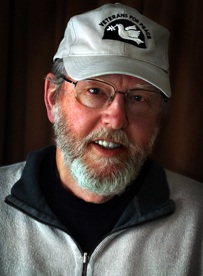In his book Somewhere in the Night: Film Noir and the American City, Nicholas Christopher suggests the late 40s and 50s noir films were mining and expressing the deep-seated anxiety -- the "collective shudder" -- of a culture on the threshold of the post-Hiroshima atomic age that had not yet fully sorted out the demons of the Great Depression.
"The war ends but there is no closure," Christopher writes. "Forces are unleashed. Organized crime, street violence, political corruption, poverty. ... GIs returning to the United States from Europe and the Pacific carry, not microbes, but lethal infirmities of the mind and spirit after four years of living day in day out with brutality and violent death, and surviving a war in which 1,700 cities and townships were destroyed and 35 million people were killed."
No society can just turn off this kind of "black energy," which is the fertile ground and dramatic fodder of all fictional and film noir -- popular art that taps into Jung's notion of the Shadow. Jungian Robert A. Johnson defines the Shadow as the flip side of the Ego/Persona that we present to the outside world. The Shadow is the "refused and unacceptable characteristics ... that collect in the dark corners of our personality." This Shadow, Johnson says, "often has an energy potential nearly as great as that of our ego."
Freud talks about the "seducing influence" of war on people and culture. This is connected to his ideas on the death instinct and Thanatos. When a society finds itself overwhelmed with this kind of black energy, he suggests, it slides toward moral bankruptcy. At this juncture, "[T]here is an end of all suppression of the baser passions, and men perpetuate deeds of cruelty, fraud and treachery, and barbarity."
Christopher again:
"Between the economic poles of opulence and squalor, and the overlapping social codes of rapacious laissez-faire capitalism and organized crime, the indelible motto of the postwar American city in the so-called boom years becomes "Anything Goes.' " And key to the noir sensibility, "Power's inescapable twin is violence."
This is the shadow world of films like Born To Kill, a tightly-scripted tale about a small-time sociopath trying to make it in post-WWII America. Real-life tough-guy Lawrence Tierney easily charms women with his confidence and feels perfectly justified in killing whenever someone tries to "cut him out" of something he feels belongs to him. Despite the title, how much of this predator's struggle for money and power is nature and how much is nurture is not an issue; the point is his focus and determination to get what he wants. As the deadly dame in the picture, Claire Trevor is his match as an amoral schemer.
Director Robert Wise keeps the film on an even, amoral keel. There is none of the salaciousness found in current films about sociopaths that separates us from them; in this film, the Tierney character is one of us. Hollywood code at the time required Wise to have the character blown away at the end, but in today's moral climate, with a little more education, some political or financial savvy and rich backers, such a character could be governor of Texas or even in the White House with killer drones at his beck and call. Or he could be at the top of the Wall Street finance game fleecing working American schmucks of their life savings.
(Note: You can view every article as one long page if you sign up as an Advocate Member, or higher).





